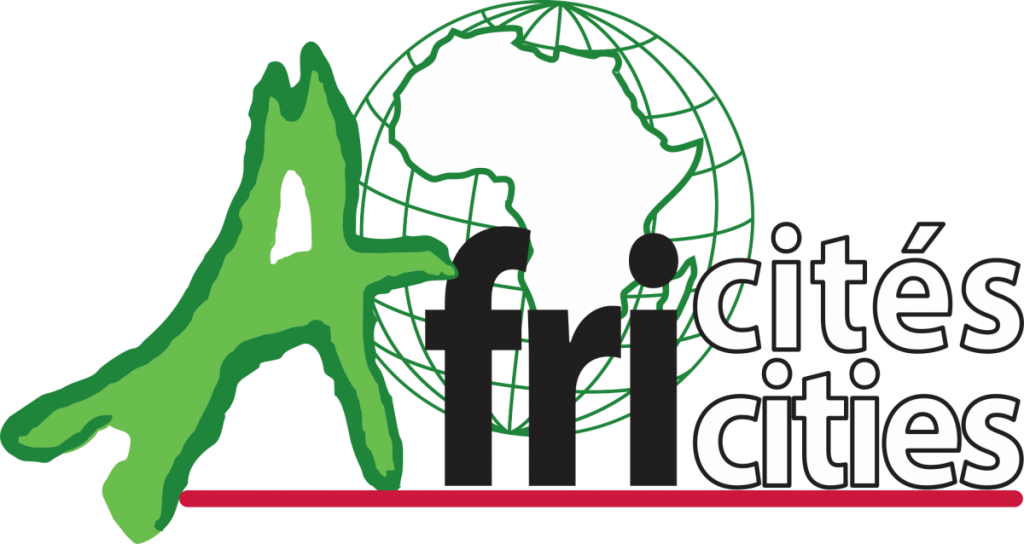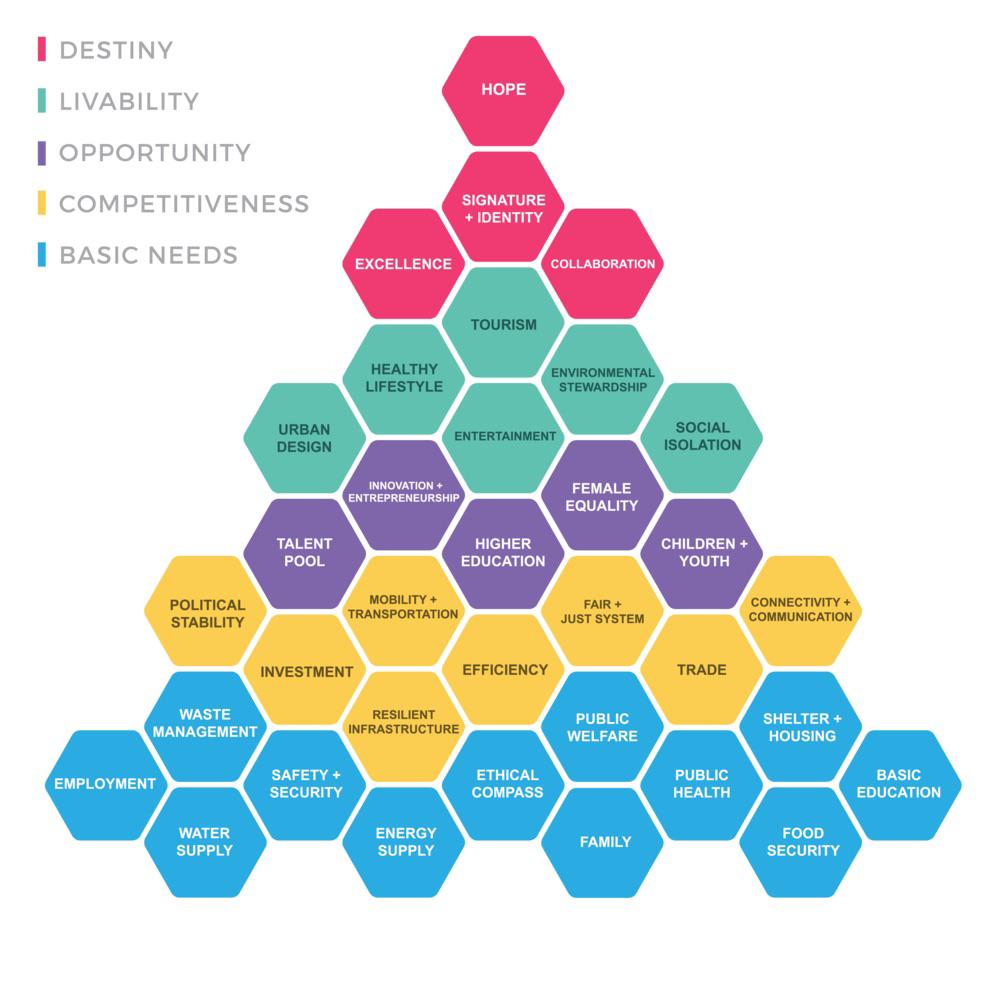
The African continent will experience unprecedented population growth over the next 30 years, with massive urban growth expected to put pressure on its cities large and small. Hence the need for data is essential. Thus, as a contribution to the African Cities Summit to be held in Kisumu, Kenya, from 17-21 May, United Cities and Local Governments in Africa (UCLG Africa) and CitiIQ, creator of an innovative global benchmark for city measurement, announced that 60 major African cities had been ranked. the details.
Rabat / Toronto, April 26, 2022 United Cities and Local Governments in AfricaUCLG Africaand CitiIQ, creator of an innovative global benchmark for city measurement, announced today that 60 major African cities have been designated as contributors to african cities summit Which will be held in Kisumu, Kenya, from 17 to 21 May. Research shows that the African continent will experience unprecedented population growth over the next 30 years, with a dramatic urban boom expected to squeeze its cities large and small.
CitiIQ uses an evidence-based methodology to score 35 critical considerations, within the five dimensions of basic needs, competitiveness, opportunity, livability, and future path. With an easy-to-use online dashboard, city metrics are readily available to customers with a cloud-based annual subscription.
The ranking of 60 major cities exemplifies the importance of the scale for intermediate cities in Africa. Accurate and consistent data collection is essential to the growth and development of African cities. The confidence of local, regional, national and international investors increases dramatically when progress over time can be reliably determined. Intermediate cities need to put in place accurate data measures to meet their needs, which is key to building their capacity for growth. A consistent classification system will accelerate the growth of efficient data cultures for intermediate cities.
UCLG Africa It has among its members 51 national associations of local government from all regions of Africa, as well as from 2,000 cities and territories with a population of over 100,000. As such, the organization represents nearly 350 million African citizens.
Jean-Pierre Elong Mbasse, Secretary General of UCLG Africadeclared: We have specifically chosen the theme of the Ninth Summit of African Cities, to emphasize the role of African intermediate cities in implementing the 2030 Agenda United nations Agenda 2063 fromthe African Union UCLG Africa mobilizes strategies, methods and tools to support its members under three pillars aimed at supporting the development of local governments to better serve their communities.
Kisumu City, in Kenya, is the first intermediate city to host the African Cities Summit.
CitiIQ uses a wide range of tools and technical expertise to collect city-specific data that is processed through the Global City Measurement algorithm. Comparable scores out of 100 are produced for the top 35 considerations for any city. The data is fed into a dashboard that easily shows results and allows customers to search data for metrics for the 114 cities used.
” Increasingly, the health and well-being of people around the world depends on the efficiency of their city Says Don Symonds, President of CitiIQ. ” Municipal leaders face enormous challenges and benefit greatly when comprehensive and comparable data can guide their decisions. »
Regions and borders of 54 countries in Africa UCLG (Image provided by UCLG Africa)
Most cities struggle to translate disparate data into actions that improve the lives of their citizens. The CitiIQ method standardizes data so that city items can be easily compared within a particular city or with other cities around the world. The service is offered as an application that can be run on any website chosen by the customer’s city. This can be seen on desktop computers, laptops, tablets, and smartphones.
CitiIQ has recognized the critical role played by middle cities around the world, which are home to more than half of the world’s urban population. These often underserved cities play a key role in localizing the Sustainable Development Goals, enabling judgment and policy coherence that links the highest priorities with the local priorities of citizens.
Accurate, frequent, and easily accessible data for local governments and their citizens supports more effective decision-making. The CitiIQ dashboard is a common reference point that reflects the company’s complex interactions. Data also plays an increasingly vital role as a currency for equity and support for vulnerable populations. CitiIQ provides a reference point for the values of solidarity, responsibility, transparency and service that characterize intermediate cities.
In Africa, 56 cities have a population of 500,000 to 1 million, 85 cities have a population of 300,000 to 500,000, 380 cities have a population of 100,000 to 300,000, and 564 cities have a population of 50,000 to 100,000. These 1,086 cities need a structure A robust data infrastructure to make its development efficient in the coming decades.
60 African Cities Ranked by CitiIQ
|
District |
Country |
city |
|
North Africa |
Algeria |
Algiers, Oran |
|
Egypt |
Cairo, Alexandria |
|
|
Libya |
Tripoli |
|
|
Mauritania |
Nouakchott |
|
|
The Kingdom of Morocco |
Rabat, Casablanca |
|
|
Tunisia |
Tunisia |
|
|
West Africa |
benign |
Cotonou |
|
Burkina Faso |
Ouagadougou |
|
|
green head |
Praia |
|
|
Cote d’Ivoire |
Abidjan |
|
|
Gambia |
Banjul |
|
|
Ghana |
Accra |
|
|
Guinea |
Conakry |
|
|
Guinea Bissau |
Bissau |
|
|
Liberia |
Monrovia |
|
|
Financial |
Bamako |
|
|
Niger |
Niamey |
|
|
Nigeria |
Lagos |
|
|
Senegal |
Dakar |
|
|
Sierra Leone |
Freetown |
|
|
Togo |
lyme |
|
|
South Africa |
Angola |
Luanda |
|
Botswana |
Gaborone |
|
|
Eswatini |
Manzini |
|
|
Lesotho |
Maseru |
|
|
Mozambique |
Maputo |
|
|
Namibia |
Windhoek |
|
|
South Africa |
Johannesburg, Cape Town |
|
|
Zambia |
Lusaka |
|
|
Zimbabwe |
Harare |
|
|
Central Africa |
Central African Republic |
bangie |
|
Chad |
N’Djamena |
|
|
Republic of the Congo |
Brazzaville |
|
|
Democratic Republic of the Congo |
Kinshasa |
|
|
Equatorial Guinea |
Malabo |
|
|
Gabon |
Libreville |
|
|
Sao Tome and Principe |
Sao Tome |
|
|
Cameroon |
Yaounde |
|
|
East of Africa |
Burundi |
Bujumbura |
|
Comoros |
Moroni |
|
|
Djibouti |
Djibouti |
|
|
Eritrea |
brown |
|
|
Ethiopia |
Addis Ababa |
|
|
Kenya |
Nairobi, Kisumu |
|
|
Madagascar |
Antananarivo |
|
|
Malawi |
Lilongwe |
|
|
Mauritius |
Port Louis |
|
|
Rwanda |
Kigali |
|
|
Seychelles |
Victoria |
|
|
Somalia |
Mogadishu |
|
|
South Sudan |
Juba |
|
|
Sudan |
Khartoum |
|
|
Tanzania |
Dar AISalaam |
|
|
Uganda |
Kampala |
About CitiIQ
CitiIQ is best known for its unique system for measuring the general well-being of a city by scoring 35 key components called CConsiderations, under the Basic Needs, Competitiveness, Opportunity, Housing and Next Path. Most cities struggle to translate the increasing volume of disparate data into actions that can improve the lives of their citizens. The CitiIQ measurement system converts raw data into scores out of 100 so that city elements can be easily understood and easily compared within a given city over time or with other cities around the world.
CitiIQ strives to become the global standard for city diagnostics and uses an evidence-based methodology that objectively illuminates human-centered design to help the city achieve its full potential. As a cloud-based subscription service, CitiIQ is easy to useAnd economic And effective.
In April 2020, with the pandemic spreading globally, UN-Habitat commissioned the CitiIQ platform where COVID-19 data was measured citywide and displayed daily in 2,600 cities around the world.
About UCLG Africa
The umbrella organization of African Local Governments was established in 2005 in Tshwane City, South Africa, after the unification of three continental groups of local governments, namely:the African Union local authorities (AULA); African Towns Union (AVU); and UCCL AFRIQUE, Africa Division of União das Cidades e Capitais Lusófonas (UCCLA). The organization’s founding conference was held in May 2005 in Tshwane, South Africa. UCLG Africa includes 51 national associations of local and regional governments from all regions of Africa, as well as 2,000 cities with a population of over 100,000. UCLG Africa represents more than 350 million African citizens. A founding member of the global organization UCLG, the regional division for Africa. It is headquartered in Rabat, the capital of the Kingdom of Morocco, where it has the diplomatic status of an international African organization. UCLG Africa has regional offices on the continent.
About the Ninth African Cities Summit
9ème The African Cities Summit (Africa 9) edition will be held from 17-21 May 2022, in Kisumu, Kenya’s third largest city, with a population of 409,000 according to the 2009 census. This is the first time that an African Cities Summit is held in a city argument. Africaiat 9 theme is: Contribution of intermediate cities in Africa to the implementation of the 2030 Agenda United nations Agenda 2063 fromthe African Union “.
For the first time, Africa 9 Summit will highlight the first level of the urban framework of the continent, which consists of about 1,500 intermediate cities in Africa with a population of between 50,000 and 500,000 people. This layer of the continent’s urban landscape currently contains just over 30% of the urban population. It is the basis for the development of local economies that regulate the relations between the people who live in rural areas and those who live in urban areas. This is the first level of development and improvement of potential and domestic production. Thus this level represents the first stage of the continent’s structural transformation. They also act as a buffer and shock absorber in migratory flows between rural and major cities as well as urban areas.

“Hipster-friendly coffee fanatic. Subtly charming bacon advocate. Friend of animals everywhere.”






More Stories
Greece will not vote in favor of Kosovo's accession to the Council of Europe: gerapitis evident after 48 hours of uproar [video]
Al-Sharq Al-Awsat: Israeli missile attack on Iran, according to ABC
Incidents in Colombia: Dozens of pro-Palestinian student demonstrators were arrested